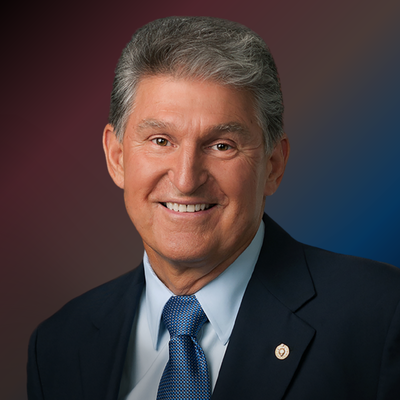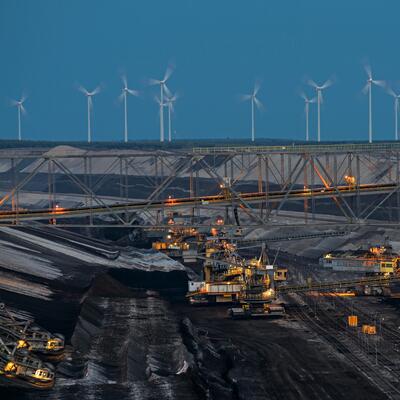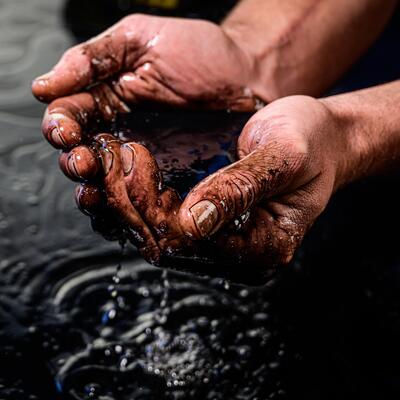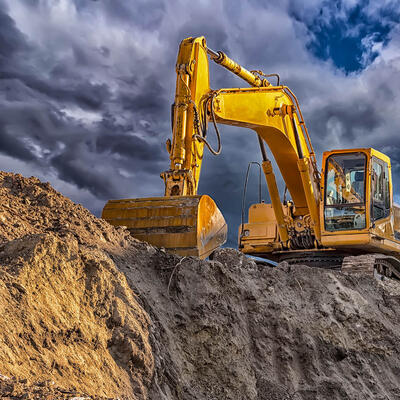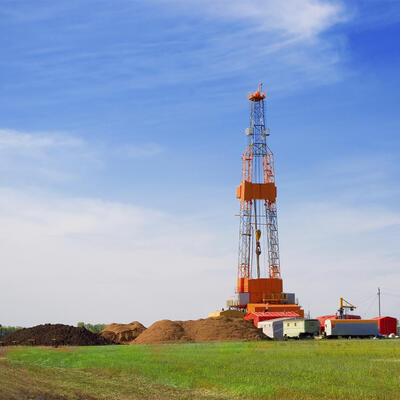
Fracking California
Guests
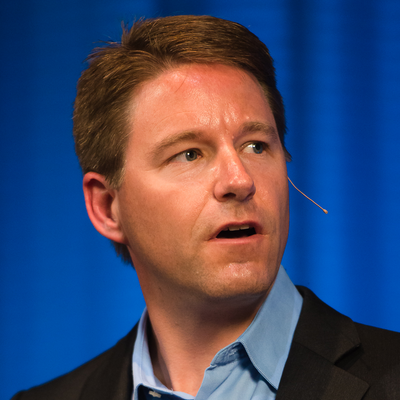
Dave Quast
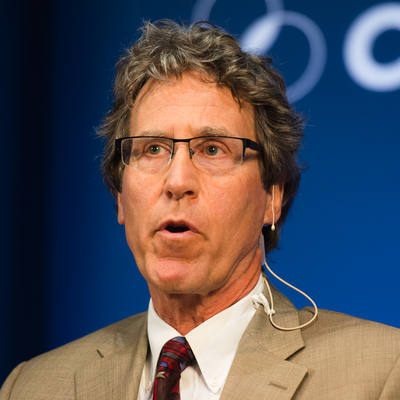
Bill Allayaud

Mark Nechodom
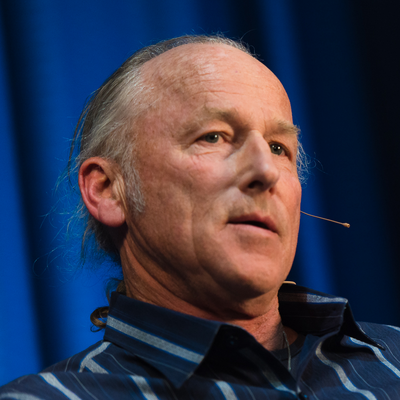
Steve Craig
Summary
Tempting oil reserves trapped in California Monterey shale are raising the possibility of a fracking boom in California. “People began to come to me...asking about what a mineral estate was and how come the oil company that owned the mineral estate could eject them from the surface of the land,” said Steve Craig, a farmer in Monterey County and former director of the Ventana Conservation and Land Trust. Bill Allayaud of the Environmental Working Group explained that California “had regulations about well casings but no regulations about fracking.” But this is changing, said Mark Nechodom, Director of California’s Department of Conservation, “in historical use of fracturing in California we had no evidence that there is any environmental damage...and therefore we had not required reporting. Now we are requiring reporting.” Dave Quast of Energy In Depth, maintained that there could be important benefits to fracking California’s oil, “onshore [American] oil developed under a very highly regulated regime is much preferable to getting it from Venezuela and some places that don’t have environmental protections,” he said. A conversation with four experts on the possibilities and risks of fracking California’s oil.
Full Transcript
Greg Dalton: Welcome to Climate One, a conversation about America's energy, economy and environment. To understand any of them, you have to understand them all. I'm Greg Dalton.
Today we're poking into the world of hydraulic fracturing or fracking. The rapidly growing technique has unleashed a drilling bonanza in the eastern and southern United States. In California, fracking has been done for years to squeeze more oil out of conventional wells. Now, the rapidly expanding technology could be employed to access shale oil deposits of 15 billion barrels, about half the amount originally held in Alaska's north slope. The prospect of a new oil boom in California has sparked a lively debate about the state's energy future. Advocates say fracking is safe and it can boost California's economy. Skeptics say government oversight has been lax and risks about freshwater supply contamination must be addressed.
Over the next hour, we'll discuss fracking California with our live audience at the Commonwealth Club in San Francisco. We're joined by four people deeply involved in this debate. Bill Allayaud is California director of governmental affairs at the Environmental Working Group. Steve Craig is former director of the Ventana Conservation and Land Trust and an olive rancher in Monterey County. Mark Nechodom is director of California Department of Conservation, which oversees the Department of Oil and Gas Resources, the main regulator of the industry in the state. And Dave Quast is California state director of Energy in Depth. Please welcome them to Climate One.
[Applause]
Greg Dalton: Steve Craig, let's begin with you and I want to ask you briefly how you came to be involved with fracking or how fracking became involved with you.
Steve Craig: Fracking came to us in Monterey County really rather suddenly and we began to see it in two ways. The first way was people began to come to me because of my background in land planning, asking about what a mineral split estate was and how come the oil company that owned the mineral estate could eject them from the surface of the land. And I was immediately piqued by the issue. The second thing that happened is a fracking well went up about 15 miles from our ranch, right on the Salinas River, lacking any of the protections that even our wineries were required to have in place. So it was first hand from angry people looking for an explanation for what was happening to their surface rights and a fracking well, which is a 24-hour a day, all night long, bright noisy operation, which out in the country upsets people.
Greg Dalton: And we'll get into more of that shortly. Dave -- am I saying this right? Dave Quast?
Dave Quast: Yes.
Greg Dalton: Okay. Dave Quast, tell us how you came to be involved with the energy industry, and drilling and fracking.
Dave Quast: Well, I've been working with the energy industry and other industrial industries for a number of years as a consultant and recently started working with -- a couple of years ago, started working in California with Energy in Depth, which really is an education and research organization, just trying to make sure that the facts about hydraulic fracturing, which has been so much in the public consciousness and has generated so much concern, are out there.
Greg Dalton: Okay. Bill Allayaud, ten years ago, environmentalists probably didn't even know about fracking. It's come on very quickly, very strong across California and the United States and Environmental Working Group. Tell us how you came to regard fracking as a serious issue.
Bill Allayaud: Sure. I'm stationed in Sacramento doing the -- working on flame retardants, BPA in baby bottles, but our staff back east was kind of ground zero for fracking, working on Pennsylvania and New York. When I saw the movie Gasland, I said, "Are we doing that in California? I haven't heard of it." So I went where any citizen would go. I went to the Division of Oil and Gas’s website, a public agency, what do they say about this? I couldn't find anything really. So I met with them and said, "Well, I got this paper here that says there's interest in fracking for gas in the Sacramento and Delta areas.” This was Petroleum, and they told me, “That's hyped from the oil companies. Don't believe it. We don't need to frack for gas because it's too cheap, it's too readily accessible." But Environmental Working Group dug deeper. Within weeks, we found out we've been fracking for oil in California since 1953. Los Angeles, most wells in Kern County were being fracked. New wells were being fracked in Monterey County, in Ventura, Santa Barbara, off shore, fracking for oil. That was the difference.
So we went to a kind of a struggle with the Division of Oil and Gas about why they were denying this and this went on for a year and -- but we developed legislation and started moving it to the legislature. Now, some things really started opening up in California and the public got involved, legislators got involved, and eventually, we got our state regulatory agencies to say, "Yes, we frack here and we want to do something about it."
Greg Dalton: And we'll get into all that in just a moment. Mark Nechodom, you came to the agency at a time when -- well, tell us how you came to the agency and a little bit of background about your entry into this.
Mark Nechodom: Sure. Well, I was minding my business as a federal climate scientist in Washington, D.C., and actually a senior advisor to the Secretary of Agriculture on climate and working on the federal climate bills. And the Department of Conservation began having some real trouble with the permitting process and that's when the government --
Greg Dalton: They were trying to slow it down?
Mark Nechodom: They were trying to do some things that really need to be looked at very carefully but kind of all at once and the governor became quite dissatisfied with them and, as we say in the business, thank them for their service and called me in Washington and asked if I would be interested in leading the department into a more kind of responsible and timed series -- timed step work on oil and gas.
Greg Dalton: So were you brought into accelerator, expedite gas and oil permitting?
Mark Nechodom: I wouldn't put it that way. Basically, we have a regulatory role and I'm sure we'll talk more about that. It's really more how do you manage the department that has oil and gas mining, land conservation, Williamson Act and the geological survey, and do it in a way that is compatible with what the industry needs to do to change in an orderly pace but not necessarily being in the pockets of the industry. Obviously, we're regulators. We don't work for the industry.
Greg Dalton: And let's get a baseline of how much fracking is happening in California. Where is it happening? This is all very new and Bill Allayaud just said that -- kind of implied that the government was sort of not transparent or covering up how much fracking was happening. So how much is happening and where?
Mark Nechodom: Yeah. I would say that covering up would be a bit of an overstatement. In fact, Bill did, I think, very well, come to the department before I was there and asked some pretty hard questions. I believe, from my understanding, is they were answering a different kind of question than you were asking and it looked like cover-up was happening. In fact, the Division of Oil, Gas and Geothermal Resources has not, to date, required reporting of hydraulic fracturing. The reason is that hydraulic fracturing is one very short blip in a very long life of an oil well and it can be one of many, many things that are done for production stimulation. So in our historical use of fracturing in California, we had no evidence that there is any environmental damage or hazard to human health, no evidence, I'm saying, and therefore, we had not required reporting.
Now, we are requiring reporting and we are in the middle of developing a regulation for that.
Greg Dalton: Let's step back and look at the big picture here. I mean, potentially, California has half as much oil as in the North Slope in Alaska. So here, that's a pretty big change to think about California as a major oil producer and, presumably, an exporter, unless we're gonna burn all that oil in State. Let's -- I'd like to get everybody involved here. Dave Quast, that's a fundamental change for California as a major petroleum state.
Dave Quast: Well, it is and we've been a major petroleum state for a number of years and the governor has indicated strongly that we want to continue to do that. And the way to get oil out of deep shale formations, for example, in a lot of cases, is hydraulic fracturing. But you touched on something earlier. I mean, California, because of its geology, hydraulic fracturing isn't used here on the percentage of oil or even close to it as it is in the East Coast, and we'll talk about water use and some other things going forward. But there are a lot of things that make California a bit different. So hydraulic fracturing is definitely, as Mark said, it's one or two-day thing that happens in a life of a well, but it is an important part of the life of some wells and it's been done safely, it will continue to be done safely and in a more regulated environment now, and we should all be excited about that given the potential economic benefits and environmental benefits of developing our oil onshore.
Greg Dalton: Are you saying that onshore oil is better than offshore oil? Is that --
Dave Quast: I'm saying that onshore oil developed under a very highly regulated regime is much preferable to importing from Venezuela and from places that don't have environmental protections, yes.
Greg Dalton: Sure. Steve Craig?
Steve Craig: Just a quick follow-up question to that. What is the quality of the oil that's being withdrawn in California? Because what we're told by Chevron in San Ardo, at least in our area, is that this oil is not fuel grade. It's often used for asphalt tile mastics. Does California have fuel grade oil prepared, ready for refinement?
Greg Dalton: Mark Nechodom? Yeah.
Mark Nechodom: The short answer would be -- the short answer would be yes, absolutely.
California's oil, depending on what part of California you're in, is a higher specific gravity, that is it's a little denser and, therefore, is less accessible in some places than it is in, say, Venezuela or in the Persian Gulf where you have light sweet crude, which refines more easily. But California does have quite a resource of usable oil for fuel.
Greg Dalton: Bill Allayaud, California has been a leader in climate policy, trying to decarbonize the economy and promote renewable fuels, and here we have the prospect of California being a major petroleum state. Help us understand that. Does that -- is California schizophrenic in that regard or is that gonna undermine California's climate leadership?
Bill Allayaud: That's a good question. Let me follow up on the last statements made by Mark and Dave though. We didn't accuse the agency of covering up. We said they turned a blind eye to it. They never explained why. They just said, “Fracking? It's just a well stimulation technique and it may last for hours or a day or two.” But we're concerned when you inject water under pressure with toxic chemicals with threats of above-ground spills, well casing failures that could pollute groundwater, all that, you don't just say, "It's a well stimulation technique. We trust the industry to regulate themselves." No. Bad idea. That's why we pushed DOGGR in using the legislature to do that to do something about it --
Greg Dalton: DOGGR is the Department of Oil and Gas Resources?
Bill Allayaud: Excuse me. I used the acronym, yeah, Division of Oil and Gas, to do something about it. Now, on energy policy, all the above is sort of what Jerry Brown is doing, although he's not a proponent of nuclear power for sure and as is President Obama. We think that that's a mistake. Well, I was around in 1973 and '79 when the Arab oil embargos took place and my -- and furthermore, my 1980 something Honda Accord got better miles per gallon than today's Honda Accord. So why is this? Why did the US sit on their hands for 40 years when we knew oil from the Middle East could be cut off and the CAFE or the fuel efficiency standards were barely bumped up over these 40 years?
I think that's not the way to go. And also utilities are blocking distributed generation, which is basically solar on every one's roof. Why are they against that? Why aren't we pushing that and energy conservation all the way before we start trying to get every last hydrocarbon out of the ground in California or in any other state?
[Applause]
Greg Dalton: Let's get a little bit more here. There are opportunities and there are risks. Mark Nechodom, let's get you on sort of -- there's this potential tremendous resource in California that could be exploited, yet it has tremendous carbon consequences.
Mark Nechodom: It is true.
Greg Dalton: You're a climate scientist after all, so.
Mark Nechodom: And I worry about that very much. But from the perspective of what the resource is, California has long been the fourth largest, it was for a long time, the third largest oil-producing state in the country. It's something that most Californians don't know. And one of the reasons that most Californians don't know is because the industry actually does operate very constrained environment, highly regulated, and you don't hear a lot about major accidents or spills, et cetera. And it's not because people are covering it up. I think it’s simply because it's a highly regulated industry and our department does have a number of engineers on the ground 24/7, 365 days a year. So it is a tremendous resource. I think one of the fundamental fears, and everybody talks about the Monterey Shale, which is not in Monterey, by the way, but the big concern is there's 15 billion barrels of oil down there, if we can just get at it, and we're going to turn the entire Central Valley, all the way to LA into something like Williston, North Dakota. And that really is a land use and development choice that California has all of the tools and all of the ability to protect farmland, to protect urban development, to do land use decision making at the local level.
It is not necessarily -- or certainly my department doesn't control land use decisions, but I think California needs to think very carefully about what are the potential impacts from another boom, which California is very famous for its booms.
Greg Dalton: Steve Craig, can you live through this?
Steve Craig: Hey, I've got to give some push back to that, with all due respect. What we have learned is that the Halliburton Loophole has basically opened this huge gap.
Greg Dalton: Explain what that is.
Steve Craig: The Halliburton Loophole is an exclusion for fracking technology, whether it's acid injection, chemical injection or any other injection, and incidentally, those injections occur at 8,000 PSI at the surface of the well head. It excludes it from the Safe Water Drinking Act. So when we saw a fracking well go up on the Salinas River where we turn off to our ranch, first we call the Army Corps of Engineers. They're drilling within the streambed. It's covered by a 401 permit for the Clean Water Act. Couldn't get them to respond. We called what was then the California Department of Fish and Game, now the Fish and Wildlife. Where is the streambed agreement? No response. We couldn't even get anyone to come out. The county, which had approved this fracking oil, the board, I hate to say, actually felt that DOGGR controlled the whole process. They don't. DOGGR is only responsible from the wellhead down. So all of the process that occurs outside that context, the trucking in, the damage to the transportation index of the roads from the heavy materials, the storage of chemicals, the complete absence of any kind of surrounding protection in case there's a spill right on the river.
No response from any agency and we called the local regional board in San Luis Obispo, and the answer we got is a very interesting one. "Well, the Safe Water Drinking Act loophole has really created a problem for us. We don't really know whether we can act because it's sort of overlapped with the Clean Water Act." So we never got any action on that well and it was drilled and drilled and drilled, and we couldn't get any reaction from any agency to address any of our concerns.
Greg Dalton: And just to clarify, this is a drill rig in a streambed for oil.
Steve Craig: In the Salinas River. Venoco was the company that did it, and, therefore, from that point forward, the locals organized and said, "Okay, we will appeal every well that these people are going to drill." And that appeal process was successful. Basically, Venoco withdrew. But my concern is, and I'm sure I'm not going with Bill has to say, everyone's been asleep or confused about how to regulate this issue, and as a member of the public, all I can say is farmers are generally short-tempered about a lot of things particularly water, and when something takes a million gallons per frack, and you've got three wells on a pad, it upsets people and there was no regulation anywhere. We couldn't find it.
Greg Dalton: Steve Craig is an olive rancher in Monterey County. Dave Quast?
Dave Quast: Yes. I'd like to speak to the water issue really quickly because this is another area much like the geology issue where it's much different in California. There are frack jobs in the East that take millions of gallons of water.
The Western States Petroleum Association has said that, in California, the average fracture of oil takes 116,000 gallons. Now, put that in perspective, an average golf course in California used 320,000 a day. So all of the hydraulic fracturing that happened in 2012 across the whole state used 202 acre-feet of water, as opposed to 27 million acre-feet in the agriculture industry. So it's a blip and it's very -- it's another reason it's very different here and so the water issues, and the other issues that we're gonna face, seismicity, things like that, we have to look at it from a California-centric perspective and we have to figure out what makes sense for California as we do these regulations.
Greg Dalton: Bill Allayaud?
Bill Allayaud: Well, compounding the problem that Steve was describing in Monterey County is when he called the Division of Oil and Gas, or DOGGR as we call them, they didn't know about this well. They didn't require a permit or anything for fracking. They said, "We don't know about fracking. Just go do it." And so they weren't -- they have regulations about well casings but no regulation about fracking. So they didn't really say anything, and then making matters worse, as an oil company, if it doesn't produce, become a producing well that oil or gas comes out, then they have to report it to the state. They can do what's called a confidential well status for up to four years on that well. So Venoco's wells in Monterey County, I think three were fracked and other wells that are exploratory by definition, we won't see what was done there for many, many years. They can keep it secret. On water use, it's more like 500 to 1,000 to a million gallons per well in California. I'm not making that up. Those are the numbers from the Division of Oil and Gas who told us that the average well is 500 or so to sometimes up to a million in California, not a hundred thousand or so.
Greg Dalton: Mark Nechodom, how much water does it take to frack in California?
Mark Nechodom: Much less. David is much closer to the number. We actually did a calculation on the ones that were voluntarily reported in California from 2010 and found that the total usage was about 8 million acre-feet. There is another --
Greg Dalton: Voluntarily means, it's like, "Yeah, we use this much." Right? I mean --
Mark Nechodom: No. Our oil and --
[Laughter]
Mark Nechodom: Our oil and gas -- there's no "gotcha" here, Greg. No. Our oil and gas supervisor basically, since we did not have a regulation in place and we could not require operators to report, but we did ask once we got a real sense of the scope and scale of public concern. I mean, I got here 15 months ago, and within 60 days of my being sworn in, I was before budget hearings in which I was being told that my department is essentially blown off the legislature because the legislature, in its clear understanding two years earlier, had said, "Go develop fracking regulations." And they had not been done. We had done a number of other things, but we had not done that. So I got a quick wake up. Our first action was, first of all, we want all operators in California to voluntarily report their frack jobs on FracFocus, the national website that's maintained by the regulatory agencies.
WSPA, the Western States Petroleum Association, immediately went out to its membership and they said, "Well, sure, we'll report all of them as far back as 2010." So they asked them to do that. We will be, in our regulation, actually requiring all frack jobs to be reported, but in terms of water usage, let me put something in a little bit of perspective. This is quite a shocking number for most people. First of all, most oil production in California is really water production. You're running a really good well if you have 80 percent water and 20 percent oil. It's more normally 95 to 97 percent produced water or brine water that's in the geological formation and 3 to 5 percent oil. So in the state of California alone, 120 billion barrels a year comes up out of the ground, gets the oil skimmed off the top, and goes back into the former formations as reinjection.
So that's about 15.5 million acre-feet, which is three times more than we move through the Delta, for Southern California, 5 million acre-feet, and it's 15.5 million acre-feet of produced water that's not usable for anything but reinjection. That's the proportion we're talking about. So a few hundred thousand gallons of water, that may be produced water, recycled or it may be freshwater, depending on the economics of it, is not a lot of water use. However, I completely understand why Californians especially should be very diligent about how we use water. Whether it's for toilets or fracking, we should be paying close attention to how we use water.
Greg Dalton: Especially in a climate era where there's projections for less freshwater in the state, declining sea air and snowpack. There already isn't enough water. We're in a drought now -- we're entering a drought. Water constraints in the future, what's the wisdom of entering into -- further into a water-intensive energy posture?
Mark Nechodom: Well, one could ask what's the wisdom of developing water-intensive industries like silicon chip development, which uses an enormous amount of water.
Greg Dalton: Most of which has left California because -- partly because of that reason.
Mark Nechodom: Yeah. It's very expensive, $3,000 an acre-foot to clean up water for that kind of intensive use. But the question of water policy, I think, is a very important political question for California. What I'm a little bit nervous about is that the Department of Conservation and the Division of Oil, Gas and Geothermal Resources is being held accountable for a whole bunch of things that are not in our jurisdiction, and I absolutely forbade my staff and my department when I got here from saying, you shall not say "It's not my job," because we are public servants. So if it's not our job, our job is to figure out, Steve, what happened there that you couldn't get good government to respond. And that to me is a deep concern. I get very, very concerned when the public feels like we are somehow ignoring them or blowing off their concerns.
We should be paying attention. We are public servants.
Steve Craig: But I think that --
Greg Dalton: Steve Craig?
Steve Craig: The way to clarify that is to eliminate this loophole. I think it's important that the regulators and you are, I guess, our chief regulator for this issue, understand the need to close that loophole and to return the Safe Water Drinking Act, Clean Water Act and all other standards to make them operable again. I mean, as a person who is entirely reliant now for my living on clean water, it is critical, and you mentioned the reinjection of 60 percent of what comes back in is reinjected water that is full of chemicals that no one has to disclose, not to you, not to any of us. And I get irritated, as you can probably tell, when we're put in a position as members of the public to carry the burden of trying to force regulators to ask the right questions, and at this point, we don't know what's in fracking fluids still. We have some idea. And you have people, some of whom we heard earlier, say "fracking, the problem." How can you even know if it's a problem if you don't even know the contents of the chemistry? I'm not a scientist anymore, but science I know is a search of truth. And that means you disclose. And if you undertake an industry that affects the public comments to hide behind the trade secret, which is for chocolate bonbons and special ways to make good champagne, it's just wrong.
It's not fair to the public to hide behind that trade secret veil and expect us to live with it.
[Applause]
Dave Quast: Can I -- can I --
Greg Dalton: Dave Quast, as the energy voice here, what about transparency and disclosure of the chemicals in the fracking fluid?
Dave Quast: Yeah. The industry absolutely supports transparency and disclosure of the chemicals and, as Mark said, has been voluntarily explained things to FracFocus, in going forward, absolutely wants to work with DOGGR to ensure that there's full transparency so that the public can feel confident that they know what’s in fracking fluid.
Steve Craig: And will you also do the epidemiology to determine how many and what combination of those chemicals actually causes human error?
Dave Quast: I will say this. The fluids that are used in hydraulic fracturing, again, 99.5 percent water and sand, with a few other chemicals, most of which are found in food products and household products. In microns, very, very small percentages in terms of the overall fluid, yes, those should be disclosed and the industry is very much in favor of that. There's no hiding behind the trade secret veil. The regulations that DOGGR has proposed are very much like the Colorado Regulations, for example, that were just passed. The Environmental Working Group -- I think the Environmental Working Groups -- certainly Earthjustice -- a number of environmental groups were instrumental in writing those regulations, which include normal standard trade secret provisions. And they were lauded as groundbreaking and this is the way we can protect the public and have transparency and still allow the industry to exist, and almost identical regulations are being proposed here in California and they are being attacked because it's a convenient thing to do for political reasons. But everyone recognizes, I think, reasonable people, that there's a need for industries to maintain their trade secrets. One of the main reasons that industries have trade secrets is so that they can improve their processes. I mean, I work with people who get up every day thinking, "How do we do this better? How do we do this safer?" The reason you innovate in fracturing fluid is to make it even greener.
That's the major innovation that's going on that the companies that are making fracking fluid. So in order to do that, you can give people the 11 herbs and spices of Kentucky Fried Chicken, but you don't have to give them the actual recipe that's in the safe.
Greg Dalton: Dave Quast is California state director of Energy in Depth. Our other guests today here at Climate One are Mark Nechodom, director of the California Department of Conservation; Steve Craig, an olive rancher from Monterey County; and Bill Allayaud, director of governmental affairs for Environmental Working Group. Bill Allayaud, is transparency currently sufficient for fracking in California?
Bill Allayaud: No. First of all, let's be clear that most of the stuff they put down in terms of chemicals are not things you eat. Guar gum [00:28:43], kerogen are some of the things they use, but they use a lot of toxic things, things that would be -- that are listed under Prop 65 in California as something that may cause cancer or reproductive harm. The Western State Petroleum Association told me right away when we started this process a couple of years ago they wouldn't associate themselves with a ban on Prop 65 chemicals being injected. They said, "You know what, we inject a lot of them every day." So even though we've heard Halliburton's developed a green fracking fluid. Now they're holding this over our head, "We won't introduce it in California unless we get trade secrets on it." Well, my understanding is they aren't using it much anywhere and this may just be hyped about this green --
Greg Dalton: It costs more.
Bill Allayaud: -- fracking fluid. Yeah, it might, but I got a feeling that Chevron who uses Halliburton to frack probably says, "Give us the good stuff because we want an efficient well-fracked well, which is benzene and xylene and diesel fuel, whatever, not kerogen and/or stuff you can drink. I think that's what's going on. And as far as the trade secrets go, we want transparency. I thought I heard Mr. Quast say a few minutes ago, "We were for full transparency. We'll do full disclosure in California." We'd love to see that. Dr. Mark Zoback of Stanford, who's a consultant for the industry and very well versed in this issue, is calling for that. He said, "There shouldn't be trade secrets on these fracking fluids. There's dangerous stuff in them. Why is the industry trying to hide behind them other than this competitive edge which they hide also their use of freshwater and other things?
So as they move out into these frontier areas in Monterey County and 11 counties have the Monterey Shale formation under them, we think transparency should be number one regulation by the government and transparency is part of that -- or is the primary thing we're looking for and the safeguards are going along with that regulation.
Greg Dalton: Mark Nechodom? On transparency?
Mark Nechodom: I think it's a terribly important issue and I don't think anybody is trying to hide behind trade secrets. What they're trying to protect is essentially competitive information. It's intellectual property rights and it's common throughout US Patent Law and California's Uniform Trade Secrets Act. I do think though, going back, Steve, to a comment you made a while ago, somebody, some group of somebodies, has to be responsible for doing the environmental toxicology and the epidemiology on any risk, whether it's exposure, risk hazard, et cetera, the standard kind of hierarchy. And if the Department of Conservation becomes the recipient of trade secrets, we are obligated by law to turn them over to anyone who asks for them under the Public Records Act, and that's what the whole struggle over trade secrets is about. Can those be delivered to somebody like the Department of Toxic Substance Control, which does a lot of the analysis on Prop 65 chemicals, for example, or OEHHA, which is a unit of the Cal/EPA, and I can't remember what the acronym -- I think it's the Office of Environmental Health and Hazard Assessment. But they have hundreds of PhD scientists whose job is to look at these various things. We have a bunch of oil and gas engineers and geologists, and if you turned over the trade secrets, we'd all stare at them stupidly saying, "Well, I don't know what this means. So it would not be meaningful for us to have it, but it would be meaningful for somebody to have it.
Steve Craig: And in the meantime?
Mark Nechodom: In the meantime, we're gonna continue production of oil and gas --
Steve Craig: Fracking?
Mark Nechodom: And fracking.
Bill Allayaud: That's what -- it comes from the top, from the leadership.
Bill Allayaud: Mark, at your confirmation hearing before the State Senate a couple of months ago, the President of Senate, Darrell Steinberg, said to you, "Fracking fluids --" and he held up a can "-- is not Coca-Cola. I see a big difference here. Coke has this competitive advantage and the secret formula locked away somewhere in Atlanta, Georgia, but he was saying that fracking fluids are being injected through groundwater with a casing around it that is being stored essentially with thousands of feet below the surface, some could escape, so he was drawing a clear distinction between Chanel No. 5, Coca-Cola and fracking fluids. How would you respond to that today?
Mark Nechodom: Well, I'm not going to use the analogy of Coca-Cola again, that being one of the more painful moments in my recent life. [Laughter] But I will say that one of the premises behind this is if you do not accept the premise that trade secrets are important to competitive behavior in an industry that, among other things, has the result of fostering innovation and fostering lower prices or lower cost to consumers, if you don't buy that premise, then the trade secret discussion is actually not very useful. But if you do buy that premise, and the question is how do you put in the safeguards that allow some other -- whether it's the FDA or some other trusted third party, to analyze the use of chemicals. Fracking is actually one of many thousands of different industrial processes in which we use incredibly dangerous chemicals and we regulate the use of those incredibly dangerous chemicals through disclosure processes. It seems to me perfectly possible, with the right statute and the right regulation, that we should be able to protect public health and safety. And as you know from that hearing, absolutely number one priority for me, and I swore on it and I've signed a letter to Darrell Steinberg for this, is public safety, environmental health and public safety shall not be superseded by any other interest, including trade secrets.
Greg Dalton: Mark Nechodom is director of California's Department of Conservation. We're talking about fracking in California at Climate One. I'm Greg Dalton. Are there any known cases of groundwater contamination by fracking in California?
Mark Nechodom: No.
Greg Dalton: Bill Allayaud?
Bill Allayaud: There are not, but one reason we believe is because no one was looking for it. We've been fracking for 50 years in California, 60 years almost now, but no one really knew we were doing it except for the companies themselves. They weren't required to monitor, so did some escape and spill on the ground, above grounds through a well casing failure, and the industry admits their well casings do fail. It's a lining of cement. Over time, maybe a farmer found -- didn't know he had benzene in his well and he was watering his plants with it. Maybe someone got it in a public water supply and didn't know benzene or something. And no one was looking --
Greg Dalton: And if it was found -- pardon me. If it was found, would it be able to be traced? How would people know where it came from?
Bill Allayaud: Well, we'd like to see strong regulations that make them disclose the chemicals they're bringing on to the site, the chemicals they use and have groundwater monitoring before and after the frack jobs. So that way, someone would know this is them and maybe even have a specific tracer, a fingerprint for that company's frack job. Also important, we think, is public notice to surrounding property owners that a well is to be fracked or even drilled, so they can say, "You know what, at my expense, test my groundwater. And then later, if something shows up, I would have the proof," so to speak. And we think the notice should go to individuals with an envelope you get in your mail, so you know. I had a great case a couple of Christmases ago where a man in the Sacramento Delta was frantic, “They’re fracking a well” and he called me up. It turns out they weren't fracking the well, but I didn't think it was fair to him to come to his house on the weekend and see an oil well being -- a gas well being re-drilled actually and not have notice. You get notice if someone's building a two-story house in a one-story zone. So why not give someone notice that they're gonna frack or drill a well that's next door to you?
Greg Dalton: Dave Quast, on the point about companies measuring water, perhaps tracers and notification?
Dave Quast: We're working alongside of DOGGR and alongside everyone concerned as the regulatory process moves forward, and we're open to discussing all of these things. But to getting back to your question about has there been groundwater contamination or adverse environmental impacts in California, the answer is, of course, no. But not only that, Lisa Jackson, Ken Salazar, scientists, regulators from the states and the federal government have conclu -- Mark Zoback from Stanford, conclusively said that there's never been a single case, proving case of groundwater contamination from hydraulic fracturing anywhere in the country. Just to be perfectly clear.
Greg Dalton: Well --
Dave Quast: That usually gets applause, because that's good news for most people.
Greg Dalton: Well, according to ProPublica, there's been a thousand cases documented of groundwater --
Dave Quast: Not from hydraulic fracturing.
Greg Dalton: Not from --
Dave Quast: No. Those are from --
Bill Allayaud: We just call it from fracking, the release of methane, until someone's water boils with methane or can light their water faucet on fire, contamination caused by fracking?
Dave Quast: Not necessarily. In New York State, you can light your water on fire.
Bill Allayaud: Oh, you can?
Dave Quast: Yeah, you --
Bill Allayaud: From -- naturally, I understand, there are cases you can, but people who had wells fracked on their property or nearby never had a problem till the well is fracked phase or a couple of weeks later, they have a bubbling up, their well water is discolored and they're lighting their faucet on fire. When I started working on this in the legislature a couple of years ago, someone from an oil company, I don't have to name them, said, "That whole thing was staged in Gasland. You could see the butane tank under the sink. I said, "Not so. I think these are real stories. So why are you denying it?? But that was what the industry did for -- and still, some of them deny, deny, deny. I can say, here in California, the Western States Petroleum Association has been cooperative in trying to work on regulations. I mean, they have their bottom lines and lines they draw on the sand, but they are trying to work with us. They're not denying, although they will say, "We've never caused contamination."
Dave Quast: Well, I mean --
Greg Dalton: Steve Craig -- let's get Steve Craig. Are there any problems with this well? You talked about in the streambed in Salinas. Any problems with that?
Steve Craig: I think the problem is it's the wrong question. I think the question shifts the burden to the public, which has no access to information. And the contamination or non-contamination of California, as it presently stands, we know for a fact in our area that we have mercury contamination and one of our two agricultural reservoirs, it's so high that you can eat one fish per year and you will exceed the federal limit. How can we be asked, as a citizen body, to produce any information at the local level when we don't know what you're using? We don't have the list of chemicals. So how do we know what contamination has occurred? And the industry is perfectly capable of doing this and doing it right. It's -- they must stop resisting it. Chevron, for example --
Dave Quast: We're not resisting it. It's on FracFocus.org and we support disclosure now. So I don't -- I don't know what the industry is resisting.
Steve Craig: Well --
Dave Quast: You can go to FracFocus right now and find out any well you want in California exactly what's in the fluid.
Steve Craig: What I was going to say was that there is a steam injection operation in San Ardo, California, which is in the middle of Monterey County. Chevron runs this. They provide a full range of quarterly reports to the public of everything that they're using in their system, everything that's in the water downstream, upstream, and in the aquifers. And I don't understand why we can't do the same thing with the combination of chemicals used in chemical injection, acid in other fracking, and I think the resistance, it isn't coming from the people. It's coming from people in the industry.
Dave Quast: You can say there’s resistance all you want. It doesn't make it true.
Steve Craig: Well --
Dave Quast: I mean, it just doesn't. There isn't any.
Steve Craig: From --
Greg Dalton: Mark Nechodom, should it -- can there be more transparency in terms of -- there's already a lot of disclosure going on. How about the fracking fluids?
Mark Nechodom: Absolutely. Both as a citizen and as a regulator, it seems to me that as much transparency as possible, across -- not just in the oil and gas industry. Most people don't know where their water comes from. Most people don't know where their milk comes from. Most people don't know where their gasoline comes from. I think it's terribly important and fracking happens to be the fulcrum point right now by which a lot of people are learning way more than they ever expected to know about how oil and gas is produced in California or elsewhere. I think that's terribly valuable. And for me, as a regulator, it makes total sense to have complete disclosure as long as we are respecting the intellectual property rights of those who are trying to competitively operate in the industry.
Steve Craig: Even if it comes -- what happens when you have a conflict between intellectual property rights and what we call the commons? Air, water --
Mark Nechodom: Public safety wins.
Steve Craig: Okay.
Mark Nechodom: There is no excuse.
Bill Allayaud: Not what the industry is saying.
Greg Dalton: Bill Allayaud.
Bill Allayaud: They're saying, at certain points, we will say, trade secrets. Let me ask -- on a can of Coke, you can't see the exact formula because that's secret, but you do see the ingredients. Would industry object to listing all the ingredients? There's benzene, xylene, guar gum and all that but leave out the exact composition, so that the neighbor or farmer would know this is what went down in that well. No trade secrets. No trade secrets.
Greg Dalton: Dave Quast?
Dave Quast: Well, no. I mean, as Mark, I think, so eloquently said, we need to make sure -- I mean, public health and safety always come first. Trade secret law, in California -- there's nothing different going on in California than there is in Colorado or there is in other places. It's not designed to get in the way of public health and safety. Trade secret law has mechanisms to protect it. So, of course, public safety comes first. You don't have to -- you don't have to disclose trade secrets in order to protect public safety.
Steve Craig: I'll take that as a no. You're not willing to just list the chemicals A through Z.
[Laughter]
Greg Dalton: Mark Nechodom?
Mark Nechodom: Yeah. Let me clarify a little bit because this always raises people's hackles and makes people fearful. Bill, you just, I think, put it about right and, in fact, this is Halliburton's current proposal for the disclosure of trade secrets. If you imagine, a simple four square, in one column, you have essentially, the ID of the chemicals used. In the other column, you have the percentage of the chemicals used. On one row, you have hazardous chemicals. On the other row, you have non-hazardous chemicals. If you disclose three of those and not the percentage of the hazardous chemicals being used, which are often the things that make your special juice competitive, but you disclose everything else, what's being used and even the percentage of non-hazardous material, they're fine with that. What they don't want to give you is the recipe. They're fine showing you all the ingredients. They just don't want to show you the recipe.
Greg Dalton: We're talking about fracking in California. Our guests are Mark Nechodom, director of California's Department of Conservation; Dave Quast, California state director of Energy in Depth. Steve Craig is an olive rancher in Monterey County. And Bill Allayaud is director for government affairs at the Environmental Working Group. I'm Greg Dalton.
I want to come back to water and then we're gonna go to audience questions. Is this gonna compete with other uses of water in the state? Steve Craig, you're a farmer, worried about water supply, here's a new water-intensive industry, how's that gonna affect water supply and demand in California?
Steve Craig: Here's how it's -- here's what's happening and I'll be absolutely honest. There are two public reservoirs built by public dollars, the Nacimiento and the San Antonio. Those reservoirs were designed and allocated to replenish the Salinas River and to prevent any seawater intrusion in the Monterey Bay.
Guess where the latest BLM fracking sale was where those two streams of water, which are public waters for agriculture, come together. And I think a part of this discussion that we've had today, both the first hour and the second hour, one of the things that's missing is the issue of the mineral estate that most farmers have underlying in their land. When the United States government disempowered the Indian Nations and took their land and they also took their mineral estate. So there's a huge mineral estate in the western part of the United States and these are being purchased by foreign companies. The Chinese National Oil Company, listed on the New York Stock Exchange, CNOOC, has purchased about 45 percent of the Marcellus and Utica Shale through its purchase of Chesapeake Energy.
We can find ourselves in this weird situation where we have a Chinese-owned mineral estate shipping gas and oil to China, since they have a controlling interest, as soon as they want to exercise it, to be used in airplanes to bomb Americans. I mean, there's no logic to what's going on with the mineral estate. In Monterey, the mineral estate that's been purchased for, right at the location of this latest BLM sale, is owned by Australia. I mean, where is our sovereignty being protected in your processes? Are you aware of this? Did you even know?
Bill Allayaud: On freshwater use, it's a huge concern. We're entering a fifth out of six years of drought in California. In about 1,300 AD, we had 120 or 140-year drought. Who's to say that can happen again? I urge the listeners and viewers of the Commonwealth Club presentation here to look at a story in the High Country News from about two and a half years ago called "Oil and Water Don't Mix in Kern County".
And it was done by a freelance reporter and it talked about how water in the droughts get cut back to the residential users, "Don't flush your toilet. You have to pay more for the water." The farmers were cut back, but the water kept flowing to the oil companies, and how much they were using? Unknown. They have to report, what Mr. Nechodom said, how much they pull out of the ground and produce and reinject, but how much they're taking from the state water project, from the Kern County Water Agencies, we don't know because they'll say, "It's intellectual property. That's competitive business. We don’t want our-- Oxidental doesn’t want Chevron to know. We think in this water poor state at times, like we are now, that everyone ought to know, if I'm being cut back in my house, shouldn't Chevron be cut back in Kern County?
Greg Dalton: Let's have our audience questions. Let's invite audience participation. I invite you to come up here with one one-part question. Welcome to Climate One. Yes.
Jesse: Thank you. Hi. Jesse from Oakland. I want to thank you for the show. I love your show. This has been really interesting. There's been a lot of talk about transparency tonight and I was thinking about transparency in terms of the guests that you bring on to your show. I notice that you introduce this guest over here from Energy in Depth, but in fact, Energy in Depth is nothing more than a front group for Exxon, BP and the Independent Petroleum Association, and the guest from earlier, Mark Zoback, was introduced as a Stanford professor and yet he's also a highly paid consultant from one of the largest oil and gas companies. So I'm wondering, what's your obligation, Greg, as a host, to disclose what goes into your guests’ paychecks?
Greg Dalton: That's up to them.
Dave Quast: Did I not make it incredibly clear that I work for the gas industry?
Greg Dalton: He's --
Dave Quast: Did I not -- did I not make it abundantly clear that I work for the oil and gas industry? If not, then I didn't do my job.
Greg Dalton: Yeah. He's here because he's the industry voice.
Dave Quast: Yeah.
Greg Dalton: That's why he's here.
Jesse: Okay. When I heard the Energy in Depth, it sounds different than the American -- or the Independent Petroleum Association who's behind that, but okay.
Greg Dalton: Okay. So point taken. I mean, he's here because he represents the industry.
Earlier, we had -- yeah. Other people who also represented the industry, that's why they're here. Commonwealth Club forum -- Climate One Forum is often to have a business voice, the industry voice, the policy voice and environmental voice, sometimes science advocacy. That's what the little circles in our logo are about, the coming together to have all those people to talk about and get the different perspectives. So thanks for that. Let's have our next audience question. Let's have our audience question. Welcome to Climate One.
Audience: Hi. Yes. Forrest Degraften . As I mentioned, I'm not familiar with fracking. I'm a little bit new, but what occurs to me is what are the disadvantages to trade secreting the fracking fluid as opposed to patenting the fluid? I understand there's a big difference. You get a 20-year life for patents. But in the United States, you can pretty much evergreen those patents so you can extend them over a much longer period, notwithstanding the India Supreme Court ruling yesterday. So if you can just outline some of the advantages of patenting the fluid which -- in which case, you'd have to reveal the components as opposed to trade secrets. Thank you.
Greg Dalton: Dave Quast?
Dave Quast: Honestly, I don't know enough about patent and trademark to be able to speak intelligently to that. I'm sorry.
Greg Dalton: Okay. We can address that one offline. We have a patent expert. Welcome to Climate One. Let's have your question. Yes, hi.
Carol DiBenetto: Hi, there. Thank you. Carol DiBenetto. I asked the same question to the last panel and I'd like to hear, if possible, your opinions. What -- I'm gonna preface it by saying, why does the government and the people have to finance this kind of analysis? So what do you all think about having the companies that make the money at doing this then be responsible for figuring it out? So if they want to do trade secret, open that up, great. Like, basically, say no to fracking, let them figure out a way to get the public and everyone to agree that it's going to be regulated correctly, funded -- regulations will be funded correctly, enforced correctly. How about that?
Greg Dalton: And I'll just mention for all of us here that we're recording this separately, so the references to the previous panel, people won't know what that is or hear that. So we'll try to treat these as stand alone. So the question is, how about the industry paying for some of the oversight as happens, Mark Nechodom, in some other industries?
Mark Nechodom: Well, what the questioner just described is the law that's been in place for about 75 years. The entire division's $38 million budget is funded on an oil and gas assessment and it's basically on a per barrel or per thousand cubic foot of gas. That assessment is changed every year, and established by law by the oil and gas supervisor, who is my division director, and we basically tell the industry "This is what you owe into the oil and gas administrative fund." And then we go to the legislature and we say, "We need this much to run this part of the department," and they essentially allocate that. So there's oversight of the allocation -- the authorization and the allocation of that money.
Greg Dalton: Bill Allayaud?
Bill Allayaud: It's a timely question, too. I believe a senate bill for -- by Senator Pavley of Los Angeles, current legislation in Sacramento, calls for a study and it says, it shall be -- it can be funded through this very mechanism. So I think the answer is the legislature is looking at that right now. Let's get some studies going and have the industry fund those studies.
Greg Dalton: Steve Craig?
Steve Craig: One very brief thing to add to that. California has an Environmental Quality Act. Before any project can be implemented, there are opportunities to study it. The problem is it depends what county you live in, whether it's done diligently. If you live in Kern County, it might be skipped entirely. If you live in Santa Barbara, Monterey, it's done very, very thoroughly.
So there is plenty of law available for review of the above-the-ground consequences. We've talked about new allocations for below the ground wellhead, but there's plenty in place. The problem is the citizens don't force their local governments to do a good job. And it is a matter of forcing them to do a good job because many of them take political donations from gas and oil.
Dave Quast: I am glad to hear this --
Greg Dalton: Dave Quast?
Dave Quast: I am glad to hear there is an appetite for having industry fund studies because, of course, the industry funds a great deal of studies and has for decades. There was recently a study of – and we don't need to get into the details of it unless you want to -- but the Inglewood Oil Field in Los Angeles, a hydraulic fracturing study, peer reviewed, done by Carden Electrics and the study was funded by court order by the industry and that was, of course, the number one talking point of activists after the results were released and found no adverse impacts from hydraulic fracturing is “Well, we can't trust it because it's funded by the industry.” So we can't really win on that score, but I'm glad to hear that might be changing.
Greg Dalton: So you're criticized if you don't fund, and if you do fund, people don't trust the results.
Dave Quast: Yeah.
Greg Dalton: Yeah. Bill Allayaud?
Bill Allayaud: This trust is twofold. One is that the peer review was by someone who works for the industry, a consultant in the industry. Secondly, PXP, the company that did the study for one of their wells, had well casings down to the very bottom of the well. That is not normal. They normally just encase below the level of usable groundwater. That was the distrust from the people in Los Angeles.
Dave Quast: Not at the press conference, it wasn't.
Greg Dalton: Let's have our next audience question. Welcome to Climate One.
Howard Fallon: Hi. Thanks for giving up your time. Howard Fallon. With the globalization of the world's economy, we're looking at the failure of nation states basically. The corporations don't pay tax anymore. Apple pays nothing. They move all the money offshore. And as a part and parcel of that, they've captured these regulatory agencies. Obama just signed the Monsanto Protection Act. So all this talk about regulation, how's that gonna happen? We have failed. These corporations own this place. They're running this show. They're the owners now.
[Applause]
Greg Dalton: Bill Allayaud?
Bill Allayaud: That's a good point, and let's not forget, these are the most powerful corporations in the world. Just the last two quarters of the last year, Exxon and Chevron reported profits, not revenue, between $7 to $10 billion per quarter. So they're big, they're powerful, they're making a lot of money, they're invested all over the world, but our concern here in California is the state agency up to the regulatory job. We maintain they've been a little too cozy with the industry all these years. They weren't getting scrutiny from environmental groups. They basically worked in the field with Chevron, Occidental for 80, 90 years, and suddenly, it's a new ball game for them and we have new leadership there. I think he welcomes the scrutiny and is trying to do something about it, but we have some level of distrust as to whether they're up to the task. The draft regulations they floated in December weren't very good and we're concerned about them, so we're pushing harder to get better regulations out of them and to end the relationship that they've had and start to say, "We put the public first, not Chevron first and who we work for."
Greg Dalton: Mark Nechodom? Anything to add?
Mark Nechodom: Having been already indicted, I think I'll pass. Thank you.
[Laughter]
Greg Dalton: That's all right. Next question. Welcome to Climate One.
Audience: Thank you. Thanks for being here. I just wanted to ask, we've been talking a lot about water quality, but I wanted to ask about air quality. Unfortunately, Los Angeles is the poster child for never being able to meet the National Ambient Air Quality Standards and there's been case studies about how, in Wyoming and Montana, places that have been heavily hit by the fracking boom, their air quality is worse than Los Angeles on smoggy days. And so talking about possibly fracking in the Central Valley where we already struggle with air quality, I wanted to see if the fracking boom would have a significant impact on the air quality in California and how that would basically affect the economics as well because health problems are very costly.
Greg Dalton: Who'd like to tackle air quality?
Bill Allayaud: I'll do -- I'll start here.
Greg Dalton: Bill Allayaud?
Bill Allayaud: One of the saddest days of my life was going to the Wind River Range in Central Wyoming, and seeing the gas wells there and the level of ozone is right. The question is right. It's higher and higher than Los Angeles. It's one of my special places to go visit in the world and it's hard for me to go back there now to see the air pollution caused by hydraulic fracturing of wells, gas wells. Here in California, air quality is somewhat decentralized. There are air quality districts. The Los Angeles district is really going after fracking strong, and doing their own rules and making sure things are okay. I've also looked into the San Joaquin Valley, Kern County were the air quality is bad. The local air district there is on top of this, too, I believe, looking at pipe fittings of fugitive emissions of both pollutants developed by their drilling process and also from leaks in pipelines. So I think we're okay there, but if there's a fracking boom, if the Monterey Shale plays out, if the oil companies are able to get into this formation in great quantity, it's a big concern just because, when you drill a well, there's diesel emissions. There could be leaks. Traffic to and from. So we need to take that into account. We can't just go blindly. We need the energy. We have to go forward. There's jobs involved. Air quality, we spent a lot of money in time. We all drive cleaner cars to clean up our air. It'd be terrible to go backwards.
Greg Dalton: Steve Craig?
Steve Craig: Just -- the one thing to add and it's probably not gonna make you feel very well. And that is, as citizens, you have to work very hard with your local governments and your local air quality management districts come to hearings, write letters of appeal. Unfortunately, there isn't a state agency that is actively involved in above-the-ground wellhead issues about tracking point source emissions. It's done on AQMD basis.
So participating in your California Environmental Quality Act process for new developments, keep your eyes out if you are a resident of a rural area because they are coming. And the only people that can stop them really, truly are the people themselves and the law is there to insist on good point source regulations, good scrubbers on any fugitive admissions. So it's a lot of work, but it's important work and you're a good citizen if you do it.
Greg Dalton: Steve Craig is an olive rancher in Monterey County. Let's hear from Dave Quast with the energy industry. Dave?
Dave Quast: On that, I would say I'm a parent in Los Angeles with four kids. So I care a lot about the air quality, at least down there. This is among the environmental issues that people are talking about, air quality, water quality, the seismicity and things like that, and DOGGR, I think it's safe to say, is working with other regulators to ensure that whatever we do end up with is comprehensive, and it's robust and that it covers all of the concerns that citizens have as long as it's based on sound science. That's what we care about.
Greg Dalton: We're talking about fracking at Climate One. I'm Greg Dalton. Let's have our next audience question.
Audience: Great. Thanks so much. My question is in regard to, I don't know if any of you have seen the short film The Sky is Pink, which is the follow up to Gasland, and in there, they make allegations that industry studies, internal review show that over something like 15 percent of well casings fail within the first year and over 50 percent over seven years, and that basically to protect the groundwater, they need to never fail. And I just want to know if anyone had any response to that as far as whether that's true or has any information whatsoever regarding that.
Greg Dalton: Mark Nechodom, how often do wells fail and cause problems?
Mark Nechodom: We don't keep direct statistics on that, but I can say that when -- I know there's a chuckle on that. You'd think we were not paying attention at all. But in fact, what we do require is any well casing failure -- first of all, there's no benefit whatsoever to an operator to continue to work a well that is broken.
It actually is a money loser. Secondly, if you have a well casing failure, you must report it, depending on the type of failure, to the Division of Oil, Gas and Geothermal Resources. We have the ability to instantly shut down or what we call shut in a well, if we believe that there's any kind of compromise to the environment or public health and safety.
Greg Dalton: Has that ever happened?
Mark Nechodom: It has. You know, failures happen. It's a big industry. There are over 250,000 wells, 70,000 operating wells in the State of California. With those kinds of numbers, you're gonna have some mechanical failures. But we are very diligent about that, and as a matter of fact, Bill began to point this out, since I've been here in 15 months, we've actually increased the number of engineers in that division by 40 percent. And we have boots on the ground and we have, as I mentioned earlier, engineers who literally sleep with their cell phones because they have to be responsive to any kind of failure or upset.
Greg Dalton: I read a statistic that there are 56 enforcement officers in California for 54,000 wells. Is that about right? One officer for about a thousand wells?
Mark Nechodom: I haven't done the math like that, but that wouldn't be untoward.
Greg Dalton: Okay. Let's have our next audience question.
Buck Farmer: My name is Buck Farmer. My question is related to the last question actually, and you referred to fracking previously as this momentary sudden event that takes place and I assume you're talking about the explosion that takes place a couple of miles down, maybe a couple of miles out on the horizontal pipe in order to open the gate or open holes through which this fluid then is pumped at huge pressures. And we hope that there's no leak entering the casing, so the stuff doesn't get up and get in the groundwater and all that.
If the wells are at risk over time, how long is the period when fracking really goes on the business end of fracking? That is the pumping and the creation of this huge pressure. How long do we have to live with that in a well that we know is at risk of falling apart and deteriorating over time? And how can that be checked? How does the well owner or the operator know that there's some little leak that's letting this terrible stuff get in the groundwater? That's the horrific event that we want to avoid at all cost, the groundwater being polluted.
Greg Dalton: So, Dave Quast, something wrong is going under the ground. Who knows and how?
Dave Quast: Well, I mean, the scientists and the engineers that are working on the wells and hopefully, no. The process hopefully is heavily regulated. I mean, one of things with well integrity, for example, because, I mean, it's an industry that has a great safety record, but of course, it's not perfect. No industry is perfect. So that's why it's one of the most heavily regulated in the federal and the state level of any industry in the country. So you do have problems and you mitigate those problems according to regulation, and if regulations need to be strengthened, they need to be modernized, then you do that. But as Mark said, I mean, there are certainly -- there are certainly apparatus in place to deal with a lot of the problems that transpire without causing any damage that goes beyond the well.
Greg Dalton: Dave Quast is California state director of the Energy in Depth, the industry organization. Let's have our next audience question. Welcome.
Daisy: Hi. My name is Daisy Pestuline. We've seen from fossil fuel extraction across the country in the world that, without a doubt, there are always failures. We saw it recently in Arkansas with the pipeline spill. We've seen it with coal. We've seen it with natural gas across the board. In 2004, Congress passed a very small fee on coal mining that created a trust fund for communities that had impacts from coal mining so that those communities would then have a fund to actually do reparations and clean up the environment when such things happen. What do you guys think about creating such a fund here in California or nationally? We have the Energy Security Trust Fund the President is talking about it, but that's not addressing this kind of environmental impacts.
Greg Dalton: And I believe isn't there -- Mark Nechodom, isn't there a per barrel fee in California for offshore oil, clean up and prevention?
Mark Nechodom: That's correct. And in fact, that fund is actually overbalanced at this point which I think we can consider a good thing. We're not using the money, but you're on to the right concept in public policy. Polluter pays. We've often run from that -- run from that assumption. But I think also there's a larger issue here of the distribution of risk and analysis of risk. And our job as state regulators are to work with industry and with other public interest to figure out what are the relative risks here. Are we going to have a $20 million fund for something that might happen once every 40 years? I don't know if that's a logical thing or not. We do have the Price-Anderson Act for nuclear power that basically shifts risk from the industry to the public and that was a big public debate about 40 years ago. That's the way we set it up. So risk is a public policy question as much as it is economics.
Greg Dalton: Before we wrap up, I just want to ask a possibility of some technology change. Fracking itself was something that wasn't seen 10 years ago. Is it possible, Bill Allayaud, that there could be waterless fracking or fracking with seawater or some other kinds of technology that would address the water supply and contamination concern?
Bill Allayaud: Sure. Things are changing all the time. Back east, they're now fracking with methane gel to stop using as much water. Here in California, we haven't talked about tonight, the use of hydrofluoric and hydrochloric acid injected under pressure to dissolve the matrix of the rock to allow oil to come up. It's called acid matrix stimulation. Apparently, that's working better in the Monterey Shale Formation, which we talked about as being under 11 counties in the state. So what will they come up with 5 or 15 years? We don't know.
We want the state to be ready for these technologies, to regulate them heavily, to be on guard for any well casing failures, to know where those failures occurred, let us know, let the public know, let the neighbors know because the industry holds a lot of the cards here. They know a lot more than the Division of Oil and Gas does. They know what's going on underground and what's happening. So we can't just rely upon them to say, "You're all safe."
Greg Dalton: And last word is will the development of Monterey Shale happen? Will California exploit this 15-billion barrels of oil that's newly recognized? Dave Quast?
Dave Quast: I think it will happen cautiously. The reason that there's not 15 billion barrels of oil being pumped up in Monterey Shale today is because we can't be economically extracted. So it's a misnomer to think that tomorrow we would see 3 percent unemployment and we would see all of the other impacts that would -- positive and negative, that could come from a rapid deployment of this. The industry needs to collect and figure out the best ways to do this and the Monterey Shale is not being terribly developed right now. I mean, there's some development, but it's not a huge play at the moment.
Greg Dalton: We have to end it there. Our thanks to our guests today. Dave Quast is California state director of Energy in Depth. We also heard from Mark Nechodom, director of the California Department of Conservation; Steve Craig, former director of the Ventana Conservation and Land Trust and an olive rancher in Monterey County; and also Bill Allayaud, California director of government affairs at the Environmental Working Group. I'm Greg Dalton. Thank you all for joining Climate One today.
[Applause]
[END]
